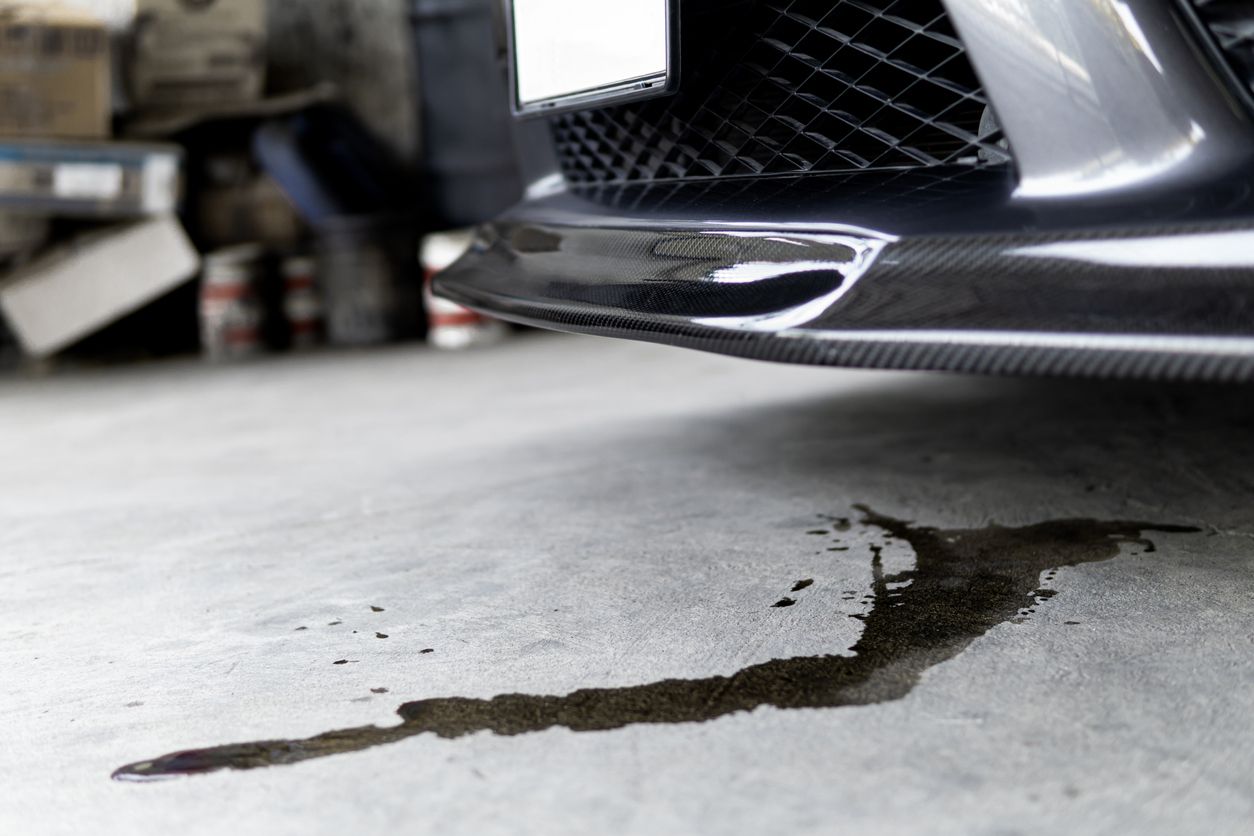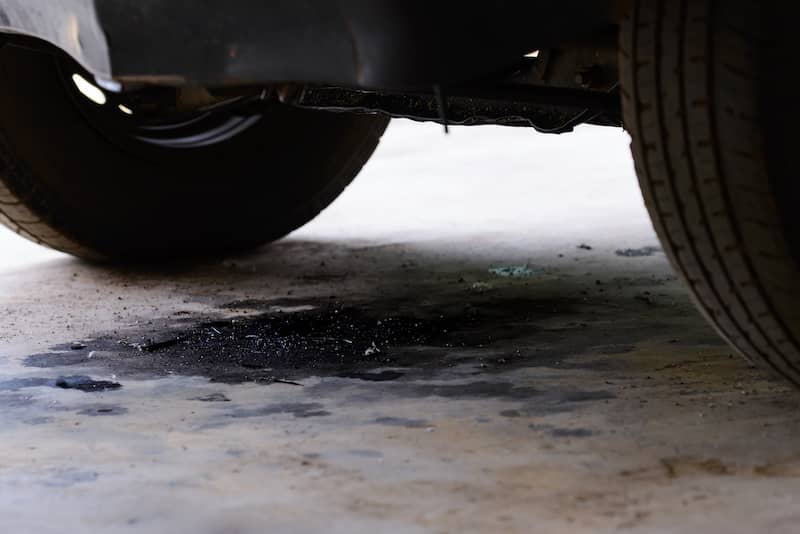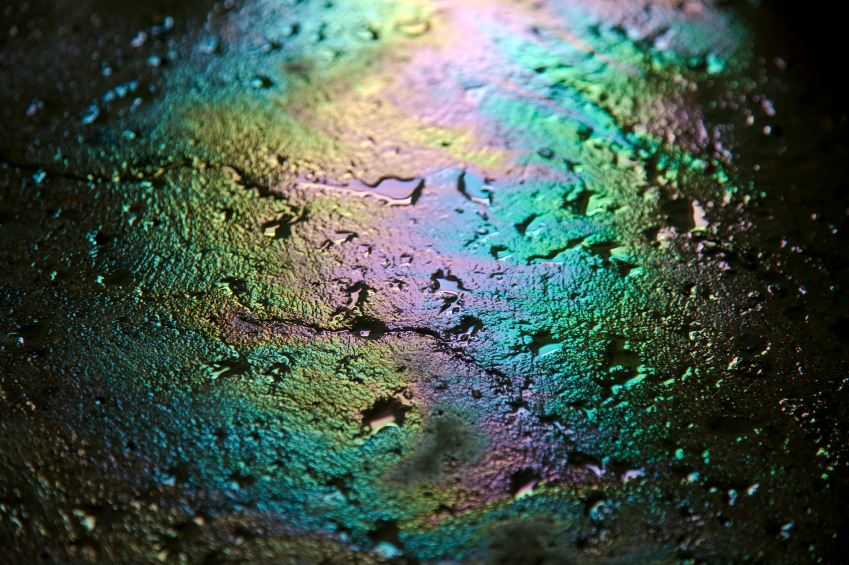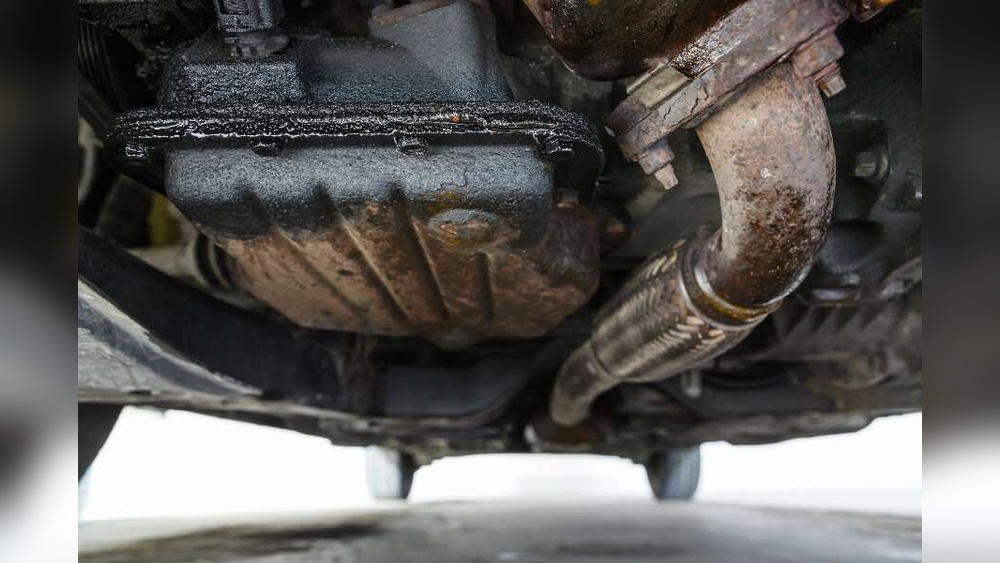Have you ever noticed a strange puddle under your car and wondered, “Why would car oil leak?” It’s not just messy—it can be a serious sign that something’s wrong with your vehicle. Understanding why oil leaks happen can save you time, money, and stress.
You’ll discover the common causes of oil leaks and what you can do to fix them before they turn into bigger problems. Keep reading to protect your car and keep it running smoothly.

Credit: www.firestonecompleteautocare.com
Common Oil Leak Causes
Oil leaks are common problems in cars. They happen because parts wear out or get damaged. Knowing the common causes helps to spot leaks early. This can save money and keep the engine safe.
Worn Engine Gaskets
Engine gaskets seal the joints between parts. Over time, heat and pressure can wear them down. Worn gaskets let oil escape from the engine. This causes slow leaks that can get worse fast.
Damaged Oil Pan
The oil pan holds the engine oil at the bottom. Rocks or road debris can hit and crack the pan. A damaged oil pan leaks oil onto the ground. This can lead to low oil levels and engine damage.
Faulty Oil Filter
The oil filter cleans the oil inside the engine. A bad or loose oil filter can let oil leak out. Sometimes, the filter seal wears out. This causes oil to drip and make a mess.
Loose Drain Plug
The drain plug lets you change the engine oil. If it is not tight enough, oil can leak around it. Sometimes the plug’s washer wears out. This creates a small but steady leak that needs fixing.

Credit: ohsbodyshop.com
Signs Of An Oil Leak
Oil leaks can cause serious damage to your car. Knowing the signs helps you act fast. Catching leaks early saves money and avoids breakdowns.
Watch for clear signals that show your car has an oil leak. These signs are easy to spot.
Oil Spots Under Car
Dark spots or puddles under your parked car mean oil is leaking. The spots are usually black or brown. Check the ground where you park every day.
Burning Oil Smell
A strong smell of burning oil means oil is leaking onto hot engine parts. This smell is sharp and unpleasant. It warns you to check the engine quickly.
Low Oil Levels
Oil leaks cause your car’s oil level to drop. Check your oil regularly with the dipstick. Low oil can harm your engine badly.
Smoke From Engine
Smoke coming from under the hood can mean oil is leaking onto hot parts. The smoke is often blue or gray. This is a serious sign to fix the leak fast.
Potential Engine Damage
Oil leaks in a car can cause serious engine problems. The engine needs oil to work well. Without enough oil, many parts inside the engine can break or fail. Understanding the damage caused by oil leaks helps you protect your car.
Overheating Risks
Oil helps cool the engine by reducing friction. A leak lowers oil levels, making the engine hotter. Overheating can cause the engine to stop working. It can also damage important parts, like the cylinder head and gasket.
Reduced Lubrication
Oil lubricates engine parts to keep them moving smoothly. A leak means less oil is available. Without enough lubrication, parts rub against each other. This rubbing creates heat and wears down parts quickly.
Increased Wear And Tear
Oil protects engine parts from damage. Low oil from leaks means more wear and tear. This leads to scratches and damage inside the engine. Over time, this can cause engine failure and costly repairs.
Diagnosing Oil Leaks
Diagnosing oil leaks is important for car care. Oil leaks can cause engine damage and reduce performance. Finding the leak’s source helps fix the problem fast. There are simple and advanced ways to detect oil leaks. Each method shows different clues about the leak location.
Visual Inspection
Visual inspection is the first step to find oil leaks. Check under the car for fresh oil spots. Look around the engine and oil pan for wet areas. Use a flashlight to see hidden spots. Look for oil stains on hoses and seals. Dirty or oily buildup often marks leak points.
Using Uv Dye
UV dye makes oil leaks easier to see. Add the dye to the engine oil. Run the engine for a short time. Use a UV light to scan the engine parts. The dye glows bright, showing where oil escapes. This method finds small or hidden leaks quickly.
Professional Leak Detection
Professionals use special tools to find leaks. They may use pressure tests to spot weak points. Infrared cameras detect temperature changes near leaks. Experts can check difficult areas safely. Professional detection ensures accurate leak location. This saves time and prevents wrong repairs.
Preventing Oil Leaks
Preventing oil leaks helps keep your car running smoothly. Oil leaks can cause engine damage and costly repairs. Taking simple steps can stop leaks before they start. Regular checks and good habits protect your engine and save money.
Regular Oil Changes
Change your car’s oil on time. Old oil breaks down and loses its sealing power. Fresh oil flows better and protects engine parts. Follow the schedule in your car’s manual. Clean oil reduces wear and prevents leaks.
Inspecting Seals And Gaskets
Seals and gaskets stop oil from escaping the engine. Check them often for cracks or damage. Replace any worn or broken parts quickly. Small cracks cause big leaks over time. Keeping seals in good shape keeps oil inside.
Proper Installation Of Parts
Parts must fit correctly to prevent leaks. Tighten bolts and screws to the right level. Use new gaskets and seals during repairs. Poor installation creates gaps for oil to leak out. Careful work protects your car’s engine from damage.
Repair Options
Car oil leaks need quick attention to avoid engine damage. Repairing the leak depends on the cause and location. Some fixes are simple, while others need parts replaced. Knowing repair options helps you decide the best step to take.
Replacing Gaskets And Seals
Gaskets and seals stop oil from escaping the engine. Over time, they wear out and crack. Replacing them stops leaks and keeps oil inside. This repair is common and often affordable. A mechanic removes old gaskets, cleans the area, and fits new ones.
Fixing Or Replacing Oil Pan
The oil pan holds oil under the engine. It can get damaged by road debris or rust. Small dents might be fixed by welding or sealing. Severe damage requires replacing the entire oil pan. This repair prevents major leaks and protects the engine.
Tightening Or Replacing Drain Plug
The drain plug lets oil out during changes. If loose, it causes slow leaks. Tightening the plug often stops the leak quickly. If the plug or its seal is worn, replacing it is best. A new drain plug ensures a tight fit and no leaks.

Credit: www.meineke.com
Frequently Asked Questions
Why Does Car Oil Leak Suddenly?
Car oil can leak suddenly due to worn gaskets, loose oil filters, or damaged oil pans. Regular maintenance helps prevent sudden leaks by identifying weak points early.
How To Identify A Car Oil Leak Source?
Check under your car for wet, dark spots or puddles. Inspect oil filter, drain plug, and seals for damage or looseness to locate the leak.
Can Low Oil Cause Car Oil Leaks?
Low oil itself doesn’t cause leaks but may worsen existing ones. Low oil levels increase engine wear, potentially damaging seals and causing leaks.
Is It Safe To Drive With An Oil Leak?
Driving with an oil leak is risky. It can lead to engine damage or failure. Fix leaks promptly to avoid costly repairs and safety issues.
Conclusion
Car oil leaks can cause serious engine problems if not fixed. Common causes include worn seals, loose bolts, or damaged gaskets. Catching leaks early saves money and keeps your car running smoothly. Regular checks help spot leaks before they get worse.
Pay attention to oil spots under your vehicle. Fixing leaks quickly protects your engine and improves safety. Taking care of your car’s oil system keeps it healthy for a long time. Don’t ignore small leaks—they often lead to bigger issues.
Stay alert and maintain your vehicle regularly.
Recent Posts
Tired of wrestling with your chains in the freezing cold? Discover how auto-fixing snow chains tighten themselves, giving you the ultimate effortless grip for a safer winter drive.
Struggling with that stubborn, hazy film on your car's glass? Discover the best oil film removers that will give you flawless, crystal-clear vision for a safer drive.

